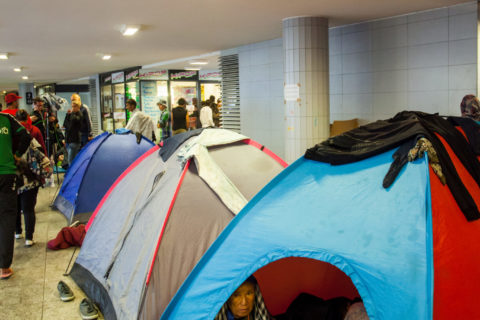Can we expect the US 2016 polls to be any good?
The American polling community is no stranger to controversy during hard-fought election campaigns, pollsters often have serious arguments about appropriate methods (such as whether random-digit dialing or using voter registration lists are better for primary elections, and what is the proper percentage of mobile phone numbers in a sample). Politicians certainly argue with pollsters when they are not happy with poll results, often citing the shopworn phrase “The only poll that counts is the one on election day.”
Republicans attacked published pre-election polls in 2012, when a number of Republican-leaning websites were devoted to “un-skewing” published poll results: they altered partisan composition in polls to increase the percentage of GOP (Grand Old Party meaning the Republican Party in the USA – ed) voters. (The pollsters for Republican nominee Mitt Romney’s campaign did much the same thing) But their assumptions were wrong. The published polls performed well in 2012, so the notion of “un-skewing” polls, altering their partisan composition, has disappeared, at least for now.
But there are other, more serious criticisms, and debate even now about whether we should expect the 2016 polls to be any good. The challenges of polling have – in many people’s eyes – become far too difficult and polls are likely to be wrong: One former President of the American Association for public opinion research, Professor Cliff Zukin of Rutgers University, claimed in The New York Times [i]that public polling was in “near crisis.” Why? There are increased costs to polling, as more and more adults move to using only mobile phones, which, according to law, must be dialed by hand. Meanwhile, he writes, news organisations struggle with severely reduced budgets, impacting the number of polls they can conduct.
Second, response rates are extremely low. And since, only about half of American adults actually vote in presidential elections, the determination of likely voters in polls is extremely difficult. And finally, there are still questions in the US about the viability of polls conducted online, which could otherwise be a way of reducing costs and gathering good data. Even though the vast majority of American adults have internet access, the use of volunteer respondent panels still remains controversial. Zukin, who favors telephone polling, wrote: “Our old paradigm has broken down, and we haven’t figured out how to replace it. Political polling has gotten less accurate as a result, and it’s not going to be fixed in time for 2016.”
If you’re an ESOMAR member you can read the full article in MyESOMAR in the digital copy of Research World. If you are not a member of ESOMAR you can join and receive a free copy of Research World 6 times a year or alternatively you can sign up for a subscription of the magazine in our publications store.


